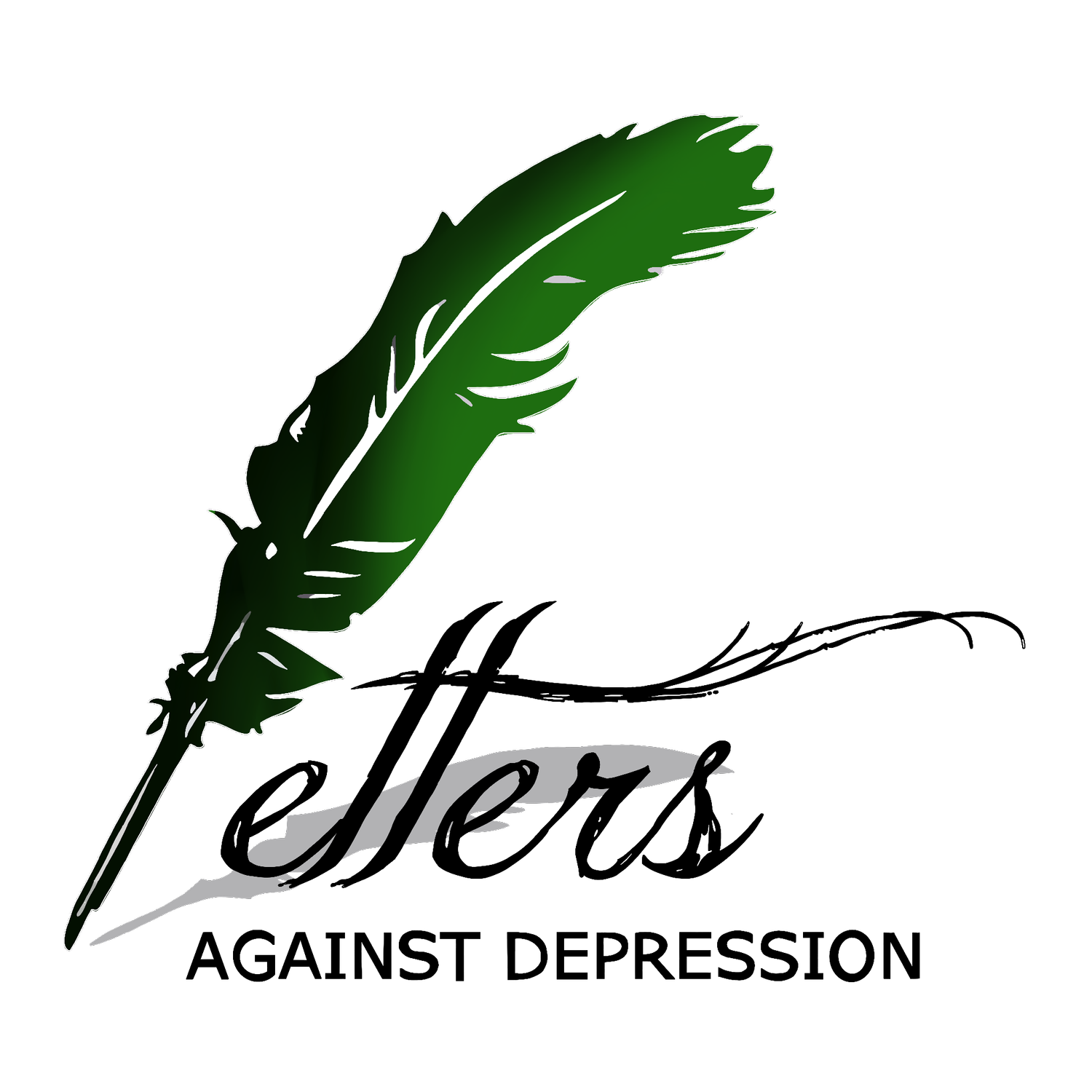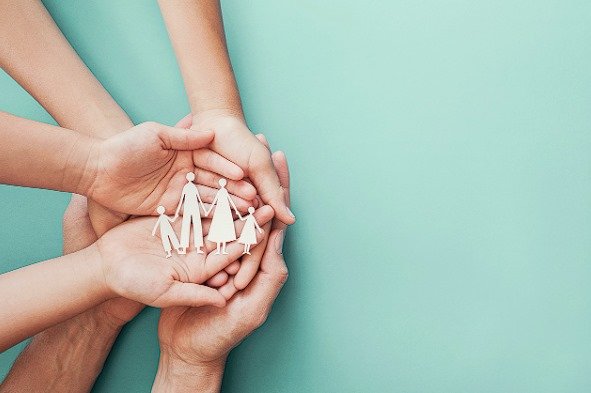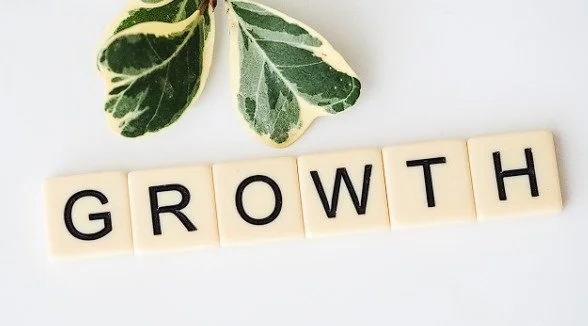How to Accept Your Disability and Challenge Societal Stigma (Natalie Brooke)
Introduction
I was first diagnosed with depression in my early twenties and then later diagnosed with Bipolar. I ended up having a bad reaction to the anti-depressants, which led to a manic episode, and I ended up in the hospital. This changed my whole life immensely. The hardest thing was the “label” I was given (Bipolar) - I felt it defined me at first. I let it take away my worth and identity for so long, it stole so much from me. That’s where the growth mindset comes in… Don’t let your diagnosis or disability make you a victim (You are worthy - oh, so worthy!!) and definitely DO NOT allow someone, especially society - to make you feel less then. You ARE much more ah-mazing than they think and have SO much potential.
My negative thoughts towards myself and my disability increased as the difficulties arose and started piling up. I was barely functioning - drowning in self pity and negativity. I was told about the Ontario Disability Support Program (ODSP) and was instantly ashamed that it got this far. I didn’t have to be. However, in order to move forward I needed to have faith and take the first step…
The First Hurdle Was Accepting Help
Ontario Disability Support Program (ODSP) is a program in Canada where the government will give you a monthly allotment to live on. Accepting this help was difficult at first but I filled out the application with the help of my doctor, and father, and eventually got accepted. It was a long journey to come to grips with being on ODSP. After some research, I’m oddly unsure about the pros and cons - do the cons outweigh the pros or vice versa? My personal experience wants to say the cons win, but I’ll let you decide. I’ll get into them, but first I want to mention the process of applying for those who don’t know… I gathered this information through a reddit thread which I think qualifies as legit because it’s based on peoples direct experience with being on ODSP. The thread is linked below.
After you send in your application you must go through a review and before a panel to see if you're approved. I never had to go to a panel. So, I’m not sure if that’s a new thing? You might get approved with a caveat that the decision is subject to review at regular intervals. You may need to provide proof that your condition permanently precludes you from being employed to a self sustaining level. That being said, there is a high level of proof that is required to get onto ODSP and this is up to the consumer to present this.
As for the “pros” here are a few I can think of:
The medication coverage - I get all my medication for my diagnosis for free. It’s all covered.
Basic vision benefits (every three years) and
Dental benefits (every 1-2 depending on what it is)
The opportunity for someone to perhaps recover enough from their illness to work again, retrain, go back to school. ODSP provides access to opportunities to do this - if a person can maintain a level of mental/physical health to be able to take this on.
Cons are as follows:
You might be treated badly depending on which caseworker you’re assigned. According to this user on reddit they said “Some caseworkers are verbally abusive to their clients. They go on to say that they had it personally happen to them, their worker yelled at them over the phone. And they know others who expressed much much worse.” (I’ve thankfully never had this happen, but I believe it!)
The same poster expressed this about the current housing issue. “ODSP does not help you find nor apply for subsidised housing. Never once in ten years have they ever expressed that maybe as a disabled person, they should assist me in doing the paperwork. They knew full well I had to take $275 out of my “basic needs” amount to cover rent, because ODSP happily consented to auto-pay my landlord. They never cared that I was left with $400 to live on. I know of other people on ODSP who were being evicted, asked their caseworker what they should do since they were legitimately worried of becoming homeless, and were told by ODSP to “look into local homeless shelters”
There’s probably more cons but these are the ones I can relate to at this point in my life.
The Societal Stigmas Attached to Disability
The stigma around mental health stereotypes those with disabilities to be helpless, unable to care for themselves or unable to make their own decisions. This is called ableism - the assumption that disabled people have less value in society, leads to bias, prejudice and discrimination, often preventing those with disabilities from reaching their full potential. Sometimes this bias is unconscious. People with disabilities may be denied jobs, housing, or other opportunities due to false assumptions or stereotypes about disabilities.
This is where breaking the stigma comes in. I’ll be sharing my own negative experiences with the stigma associated with disability but for now, rest assured - if you’ve been discriminated against or have had a negative experience with someone due to your disability - that’s on them! Not you. Don’t forget that.
I haven’t had the worst of the worst experiences but these (that I’m about to share) have hurt and still do occasionally. When someone who I’m having a conversation with, whether they’re a family friend I haven’t seen in a while, or an acquaintance asks me whether I’m working, going to school, etc. I often (due to my honest nature) throw myself under the bus, because in replying that no, I’m still not working or going to school I look like an absolute failure in their eyes. And then, the conversation thankfully ends - only after the awkward silence ensues. I try to appease them by telling them about the many ventures I’ve been partaking in but that’s not enough and alas the conversation ends again. I guess it’ll never really be enough for them?
I’ve also had friends try and “fix” me - making me feel less than for my diagnosis. Saying that they miss the version of me before I went on medication. Um, hello? We’re meant to change - I’m not the same person I was in high school. As we grow through life experiences they shape us into who we are. I find this highly insulting because it feels like they’re judging the person who you’ve become.
Don’t get me started on my experiences in the workforce. I’ve had so many bad bosses, and while I’m not perfect and can admit when I’m at fault - shaming someone for their diagnosis isn’t the best move. After a small mishap, I once had a boss yell at me and call me names because she knew I was bipolar. I cried in the bathroom that day. A friend later told me - I should have advocated for myself and quit on the spot but I didn’t. Please, if someone treats you this way - learn from my mistake, and advocate for yourself. Stand up for yourself! You don’t deserve to be treated this way. This is why I no longer disclose my diagnosis to my future employers. I learned that the hard way!!
My main goal is to eventually find a job and/or career but I’m taking baby steps. I’ve been stable for a year and a half now and what I’ve been doing to slowly gain back confidence is… hardcore volunteering.
I’ve found a community at my local library which has become quite the sanctuary during the week. I volunteer with a staff member there who’s quickly become a mother figure in my life. She’s encouraged me to look elsewhere for volunteer opportunities which I’m excited about. My latest opportunity is volunteering at a local non-profit charity shop soon! Eep. It’s going to be perfect for me… Fashion, Thrifting, and Vintage Things - Oh My! Haha. In saying that, having a job whilst being on disability is completely possible and will help to make ends meet. But although it’s easier said than done, don’t feel less than if you’re not able to work. There’s many other things you may be able to do instead!!
Learning to Accept your Disability
It can be incredibly difficult to accept your disability. It was for me. Acceptance can feel like giving in to the stigma - throwing in the towel on life and your future. But refusing it keeps you stuck. And, in being stuck you can get quite comfortable. Which prevents you from moving forward, discovering your true potential and making the changes you need to make by finding new goals, etc.
Some of the steps I took before I could accept my disability were:
Giving myself time to mourn
In learning how to mourn and accept my disability, one of the first things I taught myself was that I don’t have to put on a happy face all the time. The reality was that some days would be tough, but that doesn’t mean that every day was going to be. I had to teach myself that there’s always good in every day! Having those bad days doesn’t make me any less brave or strong. I also learnt that embracing and listening to my emotions/feelings without judgement is important. Accepting a disability is basically a roller coaster of emotions - from anger to sadness, to disbelief. This is all completely normal. And just like the journey of life, the ride on a roller coaster is unpredictable and full of ups and downs. The main thing to remember is to trust that with time, the lows will become less intense and you will begin to find your groove. A quote that's helped me with this is: “ Don’t focus on the full staircase, focus on the first step!” A journey is a series of steps towards a better destination, situation, etc. It takes time, but is completely achievable, and you’re worth it - all of it!
Coming to terms with my new reality
Some may feel “broken” after a diagnosis but that’s definitely not the case. I did at first. I looked around at all the “normal” people around me but quickly discovered that normal is just a cycle on a washing machine! It may not seem like you can be happy again, but in time - you can build a life just as amazing as y-o-u! What helped me was searching on the internet for celebrities that have the same diagnosis as I do. I found Catherine Zeta Jones (who I absolutely love!) It turns out she was diagnosed with Bipolar as well! Seeing this helped me so much, it assured me that I’m not alone. At the end of this post I’ve attached a link to my own blog post where I shared pages of the original article I found back in the day!
Also at the end of this post are some influencers I’ve found that speak out about their disabilities and who are also thriving and living lives they love! Don’t let their stories do the opposite of inspiring you, your story is special and no two stories are alike. Learning from others who have gone before you can help you stay motivated through tough times.
A surefire recipe for depression is dwelling and thinking on the things we can no longer do due to our disability. Mourn the losses, then move on. Focus on the things you can do well, and what you hope to do in the future. You have so much potential!! I’ve also learnt that setting countdowns on your phone for things you’re excited for helps too! You can download apps for keeping track of your goals as well. Oh, and do your research!! Learn as much as possible about your disability/diagnosis. Don’t focus on the negative as that is often counterproductive - but doing positive research as to what you’re facing is important. Knowing what's going on in your body and what to expect exactly will help you prepare yourself and adjust more quickly.
Finding ways to minimise my disabilities' impact on my life.
Pretending that your disability hasn't already changed your life in big ways doesn’t help! Some things will be more difficult for you than they’ll be for others. But you can reduce the impact your disability has on your life, with some commitment and a smidge of creativity.
For example, I’ve had to learn to be creative with my coping skills (among other things!) and commit to being well. I’ve filled up my mental health toolbox, found a community and better support system. These things help because I no longer feel alone. Interning for LAD, being a part of this authenticity project and the leadership team has helped immensely too. Hard work definitely pays off in many ways! As I’ve mentioned above, another way I’ve been able to express my creativity is through volunteering and finding purpose in my local community! For me, it’s at my local library where I frequent a lot. Seriously, I basically have my own “office” and am an honorary staff member!
It’s so important to remember to be your own advocate! No one else can advocate for you, as well as you can! Volunteering and eventually working in the workplace can be scary at first, full of everyday challenges. But, remember in order to break the stigma, knowledge is power. Firstly, absorb as much information about your diagnosis or disability as possible. Then, educate others as you go through the journey of life! There’s so much information and resources out there! As you take charge, you’ll also start to feel less helpless and more empowered. It’s a gradual process but worth it in the end!
While you may not be able to change your disability, you can reduce its impact on your daily life by seeking out and embracing whatever tools are available. Help is out there…
Asking for (and accepting) help and support
Often when struggling with a disability, it’s easy to feel completely misunderstood and alone. You may be tempted to withdraw from others and isolate yourself. But staying connected to others will make a world of difference in your mood and outlook. I know I’ve felt this way.
Here are some tips I’ve used for finding (and accepting) help and support.
Nurture the important relationships in your life. Spending time with family or friends - but make sure to set some boundaries if the relationship becomes toxic… you do not need people in your lives who don’t get you and accept you for the absolute gem you are! Spending time with safe people will help you stay positive, healthy, and hopeful. Sometimes, you may need a shoulder to cry on or someone to vent to - and that’s important too!
Joining a disability support group. One of the best ways to combat loneliness and isolation is to find and participate in a support group for people dealing with similar challenges. You’ll quickly realise you’re not alone. And, just that goes a long way.
Accepting help doesn’t make you weak, in fact - it makes you stronger...
Refusing help only delays your progress and makes you worse off, either physically or mentally. Let go of the fear that you’re a burden or a bother. You are most definitely not! Let the people who care about you most step in... Not only will you benefit, but it will also make them feel better! Help goes both ways - it makes both parties feel like they’ve made a difference.
Consider talking to a mental health professional. I know this is scary, as it was for me. But, having someone to talk to about what you’re going through can make a huge difference. I’m not saying loved ones can’t provide support in this way, but sometimes these topics are better suited for a professional. Don’t be discouraged if you can’t find a good fit at first - sometimes it takes time to find the right therapist! They’ll be able to further help you process the changes you’re facing, work through your grief, and help you to change your mindset.
Conclusion
Being Bipolar does not define me, neither does being on ODSP. I can offer so much to society, and have been told often that I’m an amazing volunteer. I enjoy helping people, networking and connecting with others. Continue to grow, seek help and educate yourself and others - after all, you matter, and you’re not alone in this… Things will get better, as hard as they seem right now. If you’re looking for more content be sure to check out my blog for more, and of course - LAD’s blog as well! If you’re curious about volunteering for an epic non-profit organisation consider joining us as we work towards spreading hope and support to others through handwritten letters.










